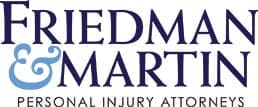When your case is settled, you may be left with medical bills, especially if you do not have health insurance, or even if you do, your health insurance may not pay all of your bills. Once your case is settled, how do these bills get paid? Sometimes, a client will want to pay their bills from their part of the settlement, and this may be at odds with the lawyer’s needing to pay the bills directly to the medical provider from funds from the client’s part of the settlement. Georgia Bar Rule, 1.15(I) states, “ a lawyer may not disregard a third person’s interest in funds or other property in the lawyer’s possession if:
- The interest is known to the lawyer, and
- The interest is based upon one of the following: a statutory lien; a final judgment addressing disposition of those funds or property; or a written agreement by the client or the lawyer on behalf of the client guaranteeing payment out of those funds or property.
The lawyer may disregard the third person’s claimed interest if the lawyer reasonably concludes that there is a valid defense to such lien, judgment or agreement.”
The bar rules also state, “when in the course of representation a lawyer is in possession of funds or other property in which both the lawyer and a client or a third person claim interest, the property shall be kept separate by the lawyer until there is an accounting and severance of their interests.”
So what does all of this mean in terms of what a lawyer must do when a client’s case is settled regarding paying medical bills? It is clear that when a lien is filed with the Superior Court of the county where the client lives, or where there is a judgment to pay, or where an agreement to pay has been signed by the client or lawyer, then funds must be held to pay that bill. The gray area is where the lawyer may think there is a valid defense to the lien, judgment or agreement. In this instance, arguably, the money for the bill may be paid to the client, but this may ultimately result in a lawsuit over the bill being filed against the lawyer and the client, and what lawyer and client want to face a lawsuit over payment of a bill that is due and owed? The better practice is for the lawyer, with the consent of the client, to attempt to negotiate the lien/bill lower based on the arguably valid defense to the lien, agreement or judgment, and pay the bill.
Also, it is not completely clear, but seems to be fine if a client has outstanding bills, but no lien, judgment or agreement to pay exists regarding those bills, that the lawyer, who has no knowledge of a third party interest, may pay that settlement money for the bills to the client, and have the client pay the medical bills. Some clients may contact a provider and set up a payment plan for payment of the bills. Also, a medical provider may be agreeable to accepting a lesser lump sum balance from a client. If the client does not pay/negotiate the bills, a lawsuit may be filed over nonpayment.
This Bar Rule is very important to clients and attorneys because the maximum penalty for violation of this Bar Rule is disbarment for the attorney. There are not many attorneys who are willing to risk their license to practice law over the issue of payment of a medical bill of a client. So, as a client, be aware that your lawyer may be required to pay certain bills out of your settlement in order to comply with Georgia Bar Rules, which are mandatory, and not rules which can be ignored.
At Friedman and Martin, we try 100% of the time to have very clear communications with our client about what bills we pay out of the client’s settlement money before the case is settled, and, what bills, if any, the client will pay, and what bills must be paid because a lien has been filed. Discussing this issue before the case is settled results in clear expectations of what the lawyer will pay and what the client will pay, and the net amount the client will get out of the settlement after all bills and liens have been paid.
